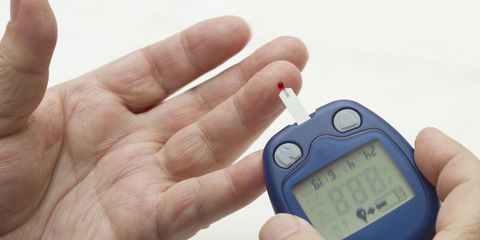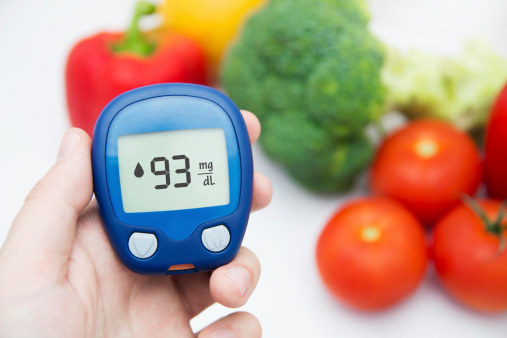

So as you might have guessed by now, this article will be all about low blood sugar and the phenomenon behind it. We will be looking at the reasons why blood sugar usually has a sudden drop in the morning-time, the symptoms pertaining to hypoglycemia, and the treatment or prevention of it all. Be sure to read through so as to get a better understanding and help someone or yourself with this illness...

Have you ever met someone with low blood sugar? Or do you actually feel like you are suffering from it? Or even worse, do you actually have it? Well, people with low blood sugar in the mornings aka morning hypoglycemia, usually feel very lethargic, dull or confused in the morning when they wake up. It is a common medical condition that a lot of us have to live with.

Hypoglycemia does not necessarily have to be a serious or life-threatening condition, that is, if you take preventive measures or treat it properly. To have low blood sugar in the early hours of the day usually happens to people medicating themselves with diabetic treatments. There are other reasons too as we will discuss them in this articles...
 There are so many symptoms to look at when talking about low blood sugar. Low blood sugar usually makes a person feeling very tired and spaced out. When a person does not take in food for long hours or has not eaten for a long time, the sugar level in the blood drops. As we never wake up to go and eat during night time, it ultimately results in a drop in the levels of blood sugar.
There are so many symptoms to look at when talking about low blood sugar. Low blood sugar usually makes a person feeling very tired and spaced out. When a person does not take in food for long hours or has not eaten for a long time, the sugar level in the blood drops. As we never wake up to go and eat during night time, it ultimately results in a drop in the levels of blood sugar.

When our body does not consume food for a long time, blood sugar levels are called fasting blood sugar. But when we sleep and our body has not taken in food throughout the whole night, it does not really affect blood sugar levels. Well, this is because the body can prevent it from dropping to fatal levels. It is then that the liver comes to the rescue, releasing some of its stored sugar during night-time.

So what is the normal fasting blood sugar levels for a regular person having diabetes? Well, the level would vary to about 70 and 130 milligrams per deciliter (mg/dL). When is the best time for a person to measure their blood sugar levels? He or she should take the test in the morning before breakfast before any food has been consumed.

What is low blood sugar? When the sugar levels of the body fall down to about 70 mg/dL, the signs and symptoms of low blood sugar would start to show. Many people would become very sick if their blood sugar levels have gone down to 70 mg/dL. On the other hand, some other people may not notice signs until blood sugar stoops lower than this level.

Someone having a very common case of hypoglycemia usually becomes slowly unaware of the symptoms that they actually have. Strangely, someone having a typically high blood sugar levels can start to show symptoms even if the levels that they currently have could be considered a normal level. This is something that is truly confusing when it comes to high or low blood sugar levels.

What researchers and doctors have found out is that someone who is carrying a child is more likely to go through morning hypoglycemia. There is a good explanation for this though. The reason behind this is because when they are pregnant, their body tends to use up more calories to help nurture the developing fetus inside their womb.

The main causes of low blood sugar would be diabetes medications like the ones for long-acting diabetes, medications of the sulfonylurea family or insulin, drugs like pneumonia, drug pentamidine, type 1 diabetics drinking alcohol , organ failure caused by chronic kidney disease, recent stomach surgery like bariatric (weight loss) surgery, rare enzyme or hormone disorders that cause difficulty in absorbing or breaking down of glucose.

Other causes also include, diabetic people with a sudden increase in activity level as exercise is known to cause lower blood glucose. It can also be due to vomiting or diarrhea, having low-carbohydrate diets, an insulin-producing tumor (insulinoma), hormonal imbalances like low adrenal function and low growth hormone and also an accidental ingestion of antidiabetic drugs. Cancer can also cause low blood sugar in rare cases.
 Let us take a close look at what the symptoms are for hypoglycemia. Headaches are one of the most common symptoms that show that your blood sugar levels are gradually dropping. Symptoms of hypoglycemia range from faint headaches to extremely severe ones. If your headaches are mild, you might not think it is a serious case but if you do not take preventive measures, it can become worse.
Let us take a close look at what the symptoms are for hypoglycemia. Headaches are one of the most common symptoms that show that your blood sugar levels are gradually dropping. Symptoms of hypoglycemia range from faint headaches to extremely severe ones. If your headaches are mild, you might not think it is a serious case but if you do not take preventive measures, it can become worse.

In the beginning, a person would go through symptoms like a swift heartbeat, sweating, hand tremors, and even hunger. If the blood level still continues to drop, a person may experience personality changes, irritability, seizures, and eventually, comas if not treated right. So make sure you never ignore these symptoms as they tend to become quite serious in a short span of time.

Other common symptoms that cause hypoglycemia would be when a person starts feeling jittery, shaky, or sweaty, loss of coordination, anxiety, exhaustion, stress, a lightheaded sensation, difficulty in concentrating, a quick heartbeat rate, paleness, hunger, feeling of nausea or a stomach ache, muscle aches and some people even experience blurred vision.

If hypoglycemia has remained untreated for too long, the symptoms can get worse and quite dangerous too. This can be found happening to people who use insulin in order to control their diabetes and go through frequent episodes of low blood sugar. This, in turn, makes them very unaware of the initial warning symptoms that may show up.

The symptoms of severe low blood sugar are so many. Here are some of them that are most common: fainting and loss of consciousness, some go through seizures too. So if someone is experiencing severe low sugar levels, they should keep in mind that it is a medical emergency. They should consult a doctor immediately. It is not something to take lightly as severe cases can be life-threatening.
 Here are some more facts about Hypoglycemia that you may find useful/informative. Hypoglycemia or low blood sugar is basically a very common experience that people with diabetes go through. It usually occurs when the blood sugar levels decrease to a line below the normal levels. Most common symptoms include clumsiness, trouble talking, confusion, loss of consciousness, seizures or even death.
Here are some more facts about Hypoglycemia that you may find useful/informative. Hypoglycemia or low blood sugar is basically a very common experience that people with diabetes go through. It usually occurs when the blood sugar levels decrease to a line below the normal levels. Most common symptoms include clumsiness, trouble talking, confusion, loss of consciousness, seizures or even death.

Treatment for hypoglycemia can differ and usually depends on its cause. It changes from person to person. When hunger is the reason, one can counter it by having a glucose-rich meal, packed with fruit and pancakes, that are known to raise blood glucose levels. Eating rapid-acting carbohydrates like 8 ounces of fruit juice, regular coke, glucose tablets, or candy is another good way to avoid low levels of blood sugar.

People having diabetes are most likely to experience low blood sugar levels in the early hours of the day. They might need to change up their medication dosage or make amendments regarding their food intake. But then again, it is always the best decision to discuss the symptoms with a doctor before personally changing the diet or medication you are currently taking.

Also, some people have hypoglycemia because of drinking alcohol. For these people, they may have to avoid alcohol. Alcohol use disorder (AUD) is a harmful medical condition and withdrawal tends to be extremely hard. Frequent drinkers should regularly ask or get treatment options from doctors. A person having AUD and diabetes or some other fatal medical condition should quickly get a supervised detox from experts.

If someone has hypoglycemia because of a temporary illness, like a stomach virus, drinking a lot of water or chugging up an electrolyte drink can actually help in preventing dehydration. If in case, vomiting or diarrhea continues to happen for more than a few days, it is advisable that one goes and sees a doctor. It could lead to a life-threatening stage that nobody wants.

Some other causes of morning hypoglycemia can be dangerous or even deadly. People who undergo low blood sugar in the mornings regularly should not fail to see a doctor. Also maintaining a log of symptoms can be useful for getting an accurate diagnosis. This could easily help in finding out the reason for low blood sugar levels in the morning and its prevention.
 One of the easiest ways of preventing low levels of blood sugar is to eat lots of fruits and pancakes for breakfast. This would help to raise blood sugar levels. However, it might not be possible to prevent morning low blood sugar if symptoms are caused due to a serious medical condition. Here, there is a need to uncover the underlying condition.
One of the easiest ways of preventing low levels of blood sugar is to eat lots of fruits and pancakes for breakfast. This would help to raise blood sugar levels. However, it might not be possible to prevent morning low blood sugar if symptoms are caused due to a serious medical condition. Here, there is a need to uncover the underlying condition.

Maintaining a well-nourished and healthy diet regularly can stop hypoglycemia from getting worse. If it is caused because of food, it can be avoided by skipping low carbohydrate diets that cause low blood glucose. One can eat a snack before bed like high-fiber snacks because fiber-rich food stretches glucose absorption and lowers low blood sugar in the morning. Also, eating small, frequent meals rather than 3 meals helps.

Also, diabetic people must always keep an eye on their blood glucose levels throughout the day. They can then make out a pattern that could help them find prevention to stop their blood sugar drops. Altering diabetes medications, or sometimes, stopping them can also be of good help. However, one must always seek an expert's advice before pursuing this.

The cause for hypoglycemia in the early hours of the day could be because of many different reasons. One must remember that it is incredibly important not to self-diagnose. Even when the symptoms fade away after having a meal, one should always choose to make a permanent change in lifestyle so as to reduce the possibility of morning blood sugar drops.

These changes could include eating a dinner late or eating a snack before going to bed. Make a doctor's appointment to get help managing chronically low morning blood sugar. Extremely low blood sugar stops the body from receiving the energy it requires and is a medical emergency. If having or changing your diet plans do not stop the symptoms, consulting a doctor is advisable.

Most people who go through low blood sugar in the morning-time can start managing symptoms using a few simple alterations in their lifestyle. Even though we know that hypoglycemia can cause a person to feel very sick, it may not always be a cause for concern. When blood sugar levels are extremely low, immediate treatment will elevate the possibility of a full recovery.

Like we have said earlier, hypoglycemia is when your blood levels or glucose levels drop in your system. Glucose is the source of energy for your body that is obtained from your meal, that is, what you eat and drink. Hypoglycemia usually occurs in people with diabetes. There are many reasons why it happens and they can be broadly divided into medicine, food, or exercise.

However, there are some people who suffer from the effects of low blood glucose even though they might not suffer from diabetes. Two kinds of non-diabetic hypoglycemia exist:
Reactive hypoglycemia, which takes place in people after a few hours of having their meal Fasting hypoglycemia, that has been directly linked to medicine or a disease.
Reactive hypoglycemia take action after a few hours following the time you ate your meal. This happens when the insulin level in your system gets too high. If you are a pre-diabetic or are likely to get diabetes, have had stomach surgery or rare enzyme defects in your boy, reactive hypoglycemia might occur.
Fasting hypoglycemia is usually a result of medicines like aspirin and sulfa drugs and excessive intake of alcohol. Liver, kidney, heart, and pancreatic complications plus low levels of some hormones and tumors are also known to be common causes.

Like most conditions, the symptoms of non-diabetic hypoglycemia can vary but depend on how low your blood sugar is. The most common symptoms include hunger, shakiness, anxiety, sweating, pale skin, fast or irregular heartbeat, sleepiness, and dizziness. Severe symptoms will have you feeling intense confusion, will blur your vision, leave you passed out, make you lose your consciousness or give your seizures.

The diagnosis of non-diabetic hypoglycemia is quite complicated. The doctors would need to do a physical exam and inquire about your medical history. This basically means there will be questions about your health history, medicines you have taken, surgeries and more. The blood glucose level will be checked to see if your levels have reduced or not after each appointment.

If you suspect that you might have hypoglycemic, do not wait for the symptoms to worsen, act quickly. There is a common test that most people take for this condition known as a mixed-meal tolerance test (MMTT). You will have to drink a special juice made to raise the levels of your blood glucose. The doctors will then run tests regarding your glucose levels.
Here are food items that are beneficial for people living with hypoglycemia who need to take note and be cautious about what they consume...

If you are not aware that vegetables are crucial in your meal, there is something terribly wrong with you. If you eat low-carb veggies such as mushrooms, eggplant, tomatoes, onions, Brussels sprouts, and zucchini, you will see great results. If you need a little extra flavor, pair them with hummus, guacamole, and salsa, or make use of seasonings.

If you have not added kale, spinach, and chard in your diet, then do that quickly. These low-carb leaves are healthy and nice to snack on. Kale leaves in olive oil when baked makes really delicious chips. You can always pair your leafy greens with protein-rich food items like salmon. Just make sure you consume a lot of them so that you get better and quicker results.

Water is a necessity for all of us and yes, drinking plenty of it helps in treating a lot of health issues you might face. If you get bored with just plain water, add some flavor by putting in slices of lemon or maybe cucumber. Cold tea made with lemon or a cinnamon stick is another very healthy drink. “Not only are these beverages low-carb, they can also help fill you up so you don’t crave other foods,” Maggie Powers, Ph.D., president-elect of Health Care & Education at the American Diabetes Association explains.

If you did not know earlier, 15 grams of carbs is present in a cup of either melon or berries. “It’s a little more expensive, but it’s a healthy treat packed with nutrients and fiber, and it’s a little bit sweet,” Powers has revealed when talking about how these fruits help with health. You can always enjoy yogurt with these berries if you feel a little adventurous...

You can always avail from eating too much or consuming unhealthy food items by having high fiber foods or whole grain foods. Dried beans, lentils and peas are always a thumbs up for people with hypoglycemia. Black bean is enjoyable with raw veggies too. “These foods still have carbs, but they have interesting flavors [that help keep you satisfied],” Powers claims.

Yes, fats can actually prove to be healthy for you. Olive oil, fatty fishes, and avocado is good for people suffering from hypoglycemia. You can just serve salmon with lettuce and that will do too. The fat that comes out from the fish is actually beneficial for the body so you a feel less guilty about having this type of oily food.

If you are worried about not being able t take in food rich in proteins, here is a list for you- cottage cheese, eggs, Greek yogurt and lean meats. “Peanut butter on a celery stick is a good fat and protein mix for a healthy, satisfying snack,” Powers also explains. Food or diet plans "shouldn’t be boring," according to Powers, "It should include the foods you love with a balance of carbohydrates.”